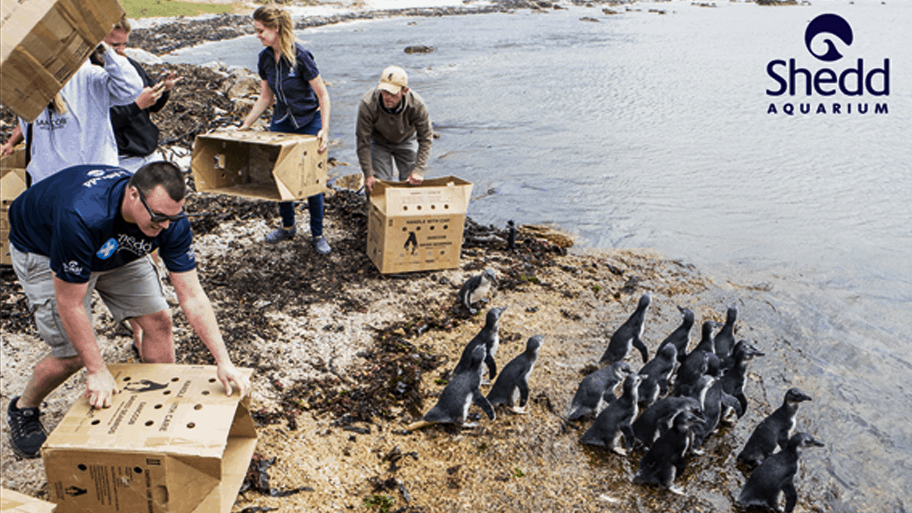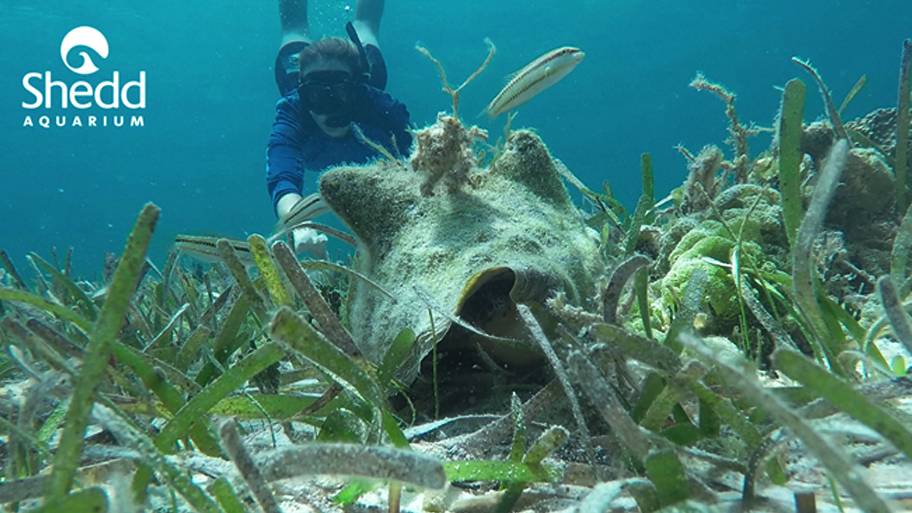Overfishing: A Global Problem
Spicy tuna roll. Tuna salad. Pan-seared ahi tuna.Tuna dishes are a favorite on American restaurant and home menus alike. Unfortunately, consistent demand throughout history has led to decreases in wild tuna populations. In fact, many fish species—from tiny sardines to majestic swordfish—across the globe have been threatened by overfishing, but thanks to the sustainable seafood movement, some populations are recovering or have rebounded.
In the 1990's, environmental organizations noticed steep declines in the populations of global fisheries. These declines were the direct result of irresponsible and unsustainable fishing practices and threatened the health of aquatic ecosystems and the humans and animals that relied on them. Since then, ocean conservation and management organizations, including Shedd Aquarium and the Marine Stewardship Council, have come together to improve fishing practices and promote sustainably sourced seafood as a way for people to take simple actions to help protect ocean health.
An Aquarium Committed to Conservation
For nearly twenty years, our team at Shedd Aquarium has educated the public—as well as local Chicago restaurants—about the importance of choosing sustainable seafood. We've also worked to equip them with the knowledge and resources to make those choices. During our outreach, the first question we often get is: Why is an aquarium talking about eating fish?The conservation of the aquatic animal world is a core part of Shedd’s mission. The Aquarium believes in taking exceptional care of the animals who call Shedd home while also protecting their wild counterparts. To keep our world thriving with aquatic wildlife, we must ensure wild fish are caught sustainably—in a way that doesn’t harm the environment or the long-term viability of fish populations.
You may have recently witnessed our penguin residents Wellington and Carmen adventuring with delight through our closed aquarium. What you may not know is that Shedd has an Animal Response Team that cares for similar penguin populations in the wild. The team has seen first-hand the devastating impacts of declining fisheries on these species.

At the South African Foundation for the Conservation of Coastal Birds (SANCCOB), a seabird rescue facility near Cape Town, South Africa, members of Shedd’s Animal Response Team have helped rescue and rehabilitate African penguin chicks whose mothers have abandoned them. Experts believe this behavior may be linked to the need for mothers to venture further and further away from the colony for their family's food as a direct result of overfishing.

Across the Atlantic in The Bahamas, Shedd’s research biologists are studying two key species—Nassau grouper and queen conch—whose populations are threatened due to overfishing. Their findings help inform local management practices of these fisheries to protect the aquatic ecosystems surrounding the Bahamas as well as the livelihoods of local fishermen in the long-term.
Sustainable Partnerships Mean Sustained Impact
Closer to home, we collaborate with nonprofit partners, like the Marine Stewardship Council, to promote sustainable seafood choices and provide our supporters and restaurant collaborators with the tools needed to find sustainable seafood. Looking for the MSC blue fish label while shopping for seafood is one way to guarantee your choices ensure a Big Blue Future for our oceans, one that sees the oceans thriving with aquatic life sustained by those who love, understand, and protect it.Whether you’re virtually enjoying Wellington’s tours around the aquarium or looking forward to visiting him in person when we reopen, we hope that he—and all the animals that call Shedd home—can serve as advocates for their wild cousins and reminders that small, everyday choices, like which seafood we’re buying at the grocery store, have lasting impacts on aquatic ecosystems across the globe.
About The Author
Gabby Petrelli holds a B.A. in Environmental Science from Northwestern University and is a former member of the Conservation Action team at the John G. Shedd Aquarium in Chicago. The Conservation Action team leads Shedd’s Sustainable Seafood Program, empowering restaurants and the public in making sustainable seafood choices.You can stay up to date on Shedd’s conservation work and get involved by following @ActWithShedd on Twitter or by visiting Shedd’s website.

